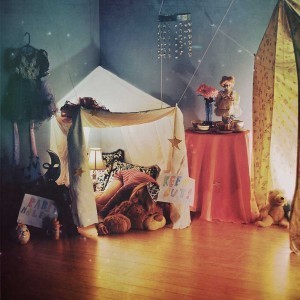The Belly of the Whale: Transitioning to a Learning Mindset
The hero, instead of conquering or conciliating the power of the threshold, is swallowed into the unknown, and would appear to have died. (p. 74, The Hero with a Thousand Faces, Joseph Campbell)
What?
After confronting the guardians and crossing the threshold, we don’t just show up in the new world, raring to go?
Nope.
Our journey has another surprise in store for us.
We may think we can just step into this new world as ourselves and our existing understanding of the world in general—and in this case, of learning in particular—will be applicable, even helpful, along the way. But that’s not so. In fact, on our unschooling journey we will question so much of what we think we already “know.”
Being swallowed is a popular image of death and rebirth in stories to symbolize a meaningful transition. It emphasizes that the “passage of the threshold is a form of self-annihilation. … the hero goes inward, to be born again.” (p. 77)
The important first step as we enter the new world of any significant journey is to transition to a learning mindset—a curious and engaged state of mind. If we cling too desperately to our existing paradigm, we often end up feeling like we have to defend it as contradictory information arises on our journey, and we won’t be open to seeing the possibilities that this new world has to offer.
We sometimes see this happen as people come to online unschooling groups or in-person gatherings, thinking they want to enter this new world, but still so fearful of letting go of the old one. Instead, they want the two worlds to mesh. “But you still teach reading and math, right?”
To bring it back to story terms, sometimes what’s really needed as we transition into a new world is a suspension of disbelief, “a willingness to suspend one’s critical faculties and believe the unbelievable.” (dictionary.com) Just for now. Just long enough to gain a foothold or two—find a couple of answers that, although unconventional, make sense to us and deeply connect with our own experiences. We have found some truth. And in that truth, some stability and confidence, buoying us as we begin to question so many of our conventional beliefs about learning and living to their very core.
(How did I not realize before the root of that word: quest-ion. A quest for answers.)
 I Spy, Lissy Elle
I Spy, Lissy ElleOften this seemingly metaphorical stage of leaving the ordinary world by being swallowed up plays out rather literally. I know for me, at this stage we spent a lot of time at home. Our home felt like our sanctuary. For me, it was a place where I was free from judging eyes, at a time when I was most vulnerable to it. For my children—turning 10, 8, and 5 that year—it was a place where they could dive into their play with abandon. Make up for lost time.
And that bit about “would appear to have died”?
Even as we occasionally went out to visit, I had less and less to contribute to conversations with my more conventional friends. I wasn’t interested in “converting” them in any way, and I was happy to answer any questions they had of me. But those tapered off quickly too, their focus shifting to complaining about school and their children’s behaviour—when moms get together it’s often their time to “vent.” Soon we had less and less stuff in common to connect over, so naturally we connected less and less.
Even more so, if there are friends that are actively not supportive, we find ourselves pulling back from them. We’re busy when they invite us over, and less likely to reach out and initiate a conversation.
The “old me” was dying away rather quickly, my firm hold on how the world worked slipping away and shutting down, system by system. And from the outside, it probably looked like we had disappeared off the face of the earth.
Every time I think of this stage, my mind pulls up an image of the basement of the house we were living in at the time. We already had it set it up as a big playroom for the kids. Couches with removable pillows (forts for days on end). A walk-in closet under the stairs filled with shelves, in turn filled with games and toys. A kid-sized table. Lots of floor space. A TV with game consoles (Nintendo 64!). A computer with internet access. A hamster cage with its accessories. And hamster. Lots of lights. We cocooned in there for months.
And that’s okay. It’s natural for us to withdraw from the ordinary world right now. This time in the belly gives us the space to play with the idea that we know little about this new world we are choosing to enter. As part of our metaphorical rebirth, we embrace that we are like young children in this new world, eager to explore and learn how it works.
Yet it can be hard to admit we don’t know things. Most of us have probably grown up with the idea that as adults we’re supposed to know all the answers and here we are, back to feeling the vulnerability of a child, while being a parent. To live with this uncertainty is challenging. Definitely uncomfortable. But something deep inside calls us to keep going.
This is the final separation from the ordinary world. Our rebirth into the world of unschooling.
Now we are truly open to new ideas, ready to question everything.
Our departure phase is done. 
Your journey
If you’re inclined to share, I’d love to hear about your journey in the comments! Here are a few questions about the “belly of the whale” stage to get you started:
1. Looking back, do you recall this withdrawal from the conventional world as you entered the unschooling world? Or are you in the midst of it right now?
2. Did you find yourself engaging less with some of your existing friends or family?
3. Did you retreat into the cocoon of your family’s home?
4. Did releasing your grip on your existing paradigms and opening yourself up to question conventional wisdom make you feel vulnerable?
The road so far …
Departure phase of the journey
Call to adventure: We discover unschooling and excitedly imagine the possibilities.
Refusal of the call: The many implications of choosing unschooling hit. Do we commit?
Supernatural aid: Our children guide us on our unschooling journey
Crossing of the first threshold: Confronting the guardians who claim to protect us



